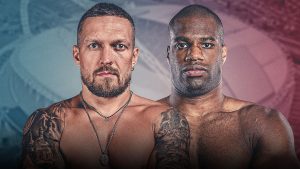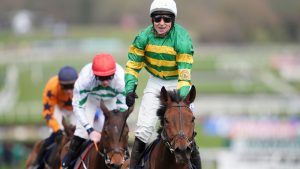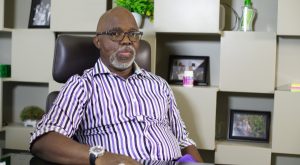Goodell’s stint atop NFL quite a roller-coaster ride
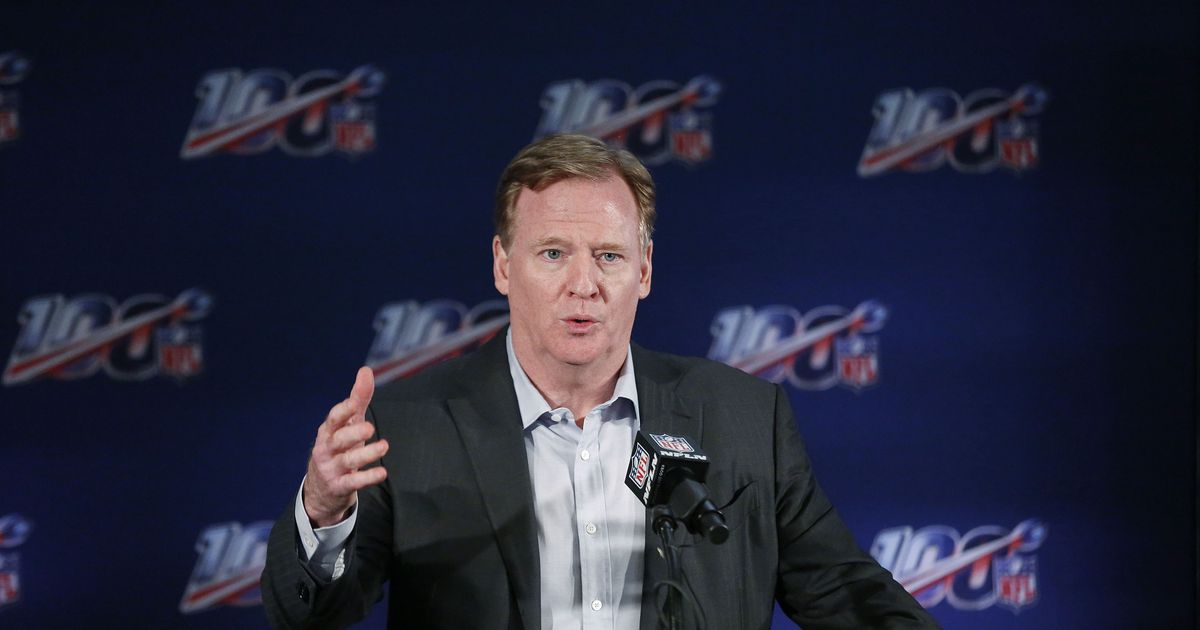
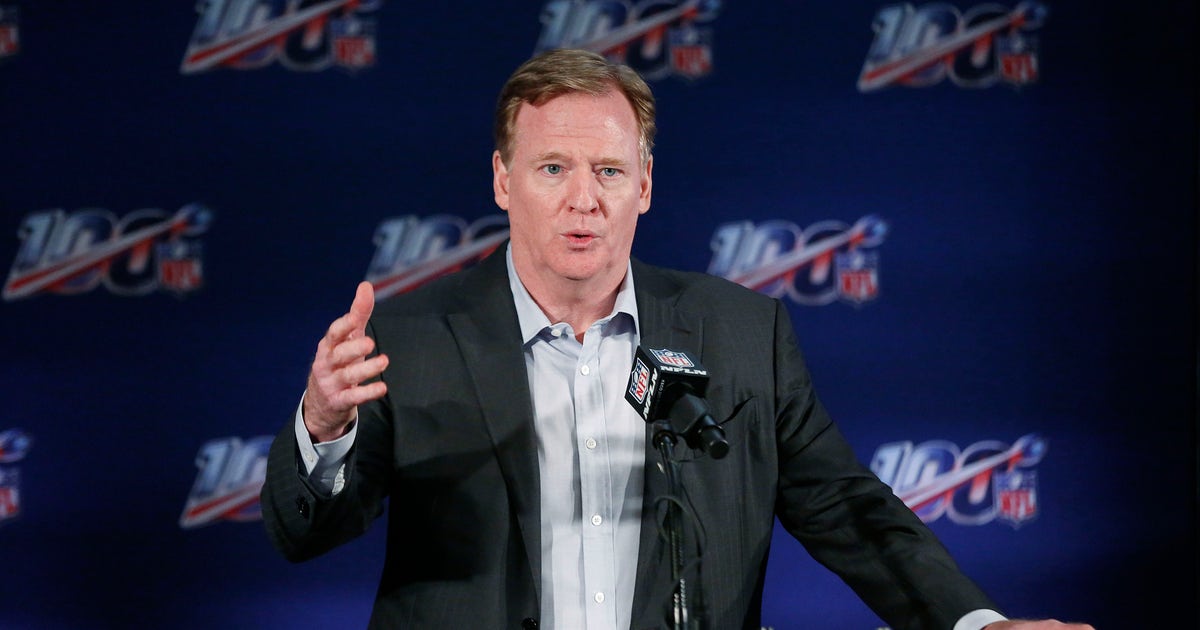
NEW YORK (AP) — During the fall of 2011, a couple of months after the NFL’s lockout of the players ended and the regular season began as scheduled, a class of graduate students was asked to rate the pro sports commissioners.
Roger Goodell stood first, far above his peers.
A few years later, after such issues as player misconduct, bounties and deflated football scandals, health and safety issues, and skyrocketing cost of tickets became prevalent, a similar class rated Goodell behind the NBA’s Adam Silver, the NHL’s Gary Bettman, and tied with MLS’ Don Garber.
But Goodell recently made Sports Business Journal’s top spot for sports executives.
Such is the roller coaster the head of the most popular and lucrative sport in America must ride.
Goodell gets praised for helping make the sport more available to fans, for embracing technology and new media, and for overseeing programs designed to enhance diversity — even if those programs aren’t quite making the impact the league projects.
His bosses, the 32 team owners, all very rich and powerful men and women, are thrilled that the league’s burgeoning revenues show no sign of dissipating. Those revenues have skyrocketed from $6 billion in 2006, when Goodell replaced Paul Tagliabue, to more than $15 billion now.
The players have benefited with ever-increasing salaries; the average wage in the league is nearing $3 million, with the salary cap projected to approach $200 million.
“Whatever disputes the players and union may have with Roger Goodell personally,” says Marc Ganis, president of SportsCorp, a Chicago-based consulting firm, and an adviser to several team owners, “one thing they all know and understand is that Roger and the team he has put together can generate so many additional revenues. It’s letting people do what they do best, and the NFL under Roger Goodell is extraordinary at increasing revenues, and the players understand this.”
Goodell was hired for several reasons. The owners wanted an insider who knew the functions of the league on all levels; only Goodell truly fit the bill. They also wanted someone willing to crack down on player misconduct — someone “tougher” than Tagliabue had been.
Goodell, 60, has led the NFL’s move into uncharted territory, first with fantasy football and now with legalized betting. There are billions more to be earned there, and no one who does business with the NFL believes the league won’t find lucrative ways to monetize in those areas.
Yet there is unrest, and always will be, no matter who is the commissioner. Consider that while Goodell’s main charge is to do the owners’ bidding, he also has had to sanction or oppose in court some of them — including such confidantes as New England’s Robert Kraft in the “Spygate” and the deflated football case involving Tom Brady, and Dallas’ Jerry Jones in the suspension of running back Ezekiel Elliott.
And, naturally, there is much discord from the players, who fiercely oppose Goodell’s iron hand in disciplinary issues; never mind that the players’ union approved once again those rights during the labor negotiations nine years ago. Those players also believe Goodell hasn’t stood firmly enough in supporting their protests against social and racial injustice, and that, despite no evidence to support the claim, he’s helped blackball Colin Kaepernick, who began the demonstrations during the national anthem back in 2016.
Goodell attempted to ease such criticism about the Kaepernick situation by having the league put together an unprecedented private workout in November for the former 49ers quarterback. That spiraled into an almost-comical series of machinations possibly caused by Kaepernick’s insistence on certain conditions for the session, or the league’s intransigence. Or both.
The NFL insists it went far beyond the normal workout standards to alleviate Kaepernick’s concerns, changing the order of the session; allowing him his own receivers; filming the workout with Kaepernick’s people supervising; and allowing Kaepernick’s side to control what questions were asked of him.
The NFL insisted its intent was to provide the quarterback with an opportunity to showcase his skills. Kaepernick’s friend and ex-teammate Eric Reid, meanwhile, called it a “publicity stunt.”
It should be remembered that Goodell didn’t (or couldn’t prevent) the owners’ ill-advised attempt to govern such protests by coming up with a rule that would not allow demonstrations on the sideline, but would allow players to stay in the locker room during the national anthem. He quietly negotiated with the NFLPA to essentially shelve the rule before it was ever put into practice.
Goodell deserves blame for making some very ill-advised decisions, most notably in suspending Ravens running back Ray Rice for only two games for assaulting his then-fiancée in 2014. Then a video of the incident went viral, and soon the NFL was reconstructing the personal conduct policy, with the players’ union complaining it wasn’t consulted in that recasting.
Goodell apologized for that misstep.
“At times, however, and despite our best efforts, we fall short of our goals,” Goodell wrote in a letter to NFL owners. “We clearly did so in response to a recent incident of domestic violence. We allowed our standards to fall below where they should be and lost an important opportunity to emphasize our strong stance on a critical issue and the effective programs we have in place.
“My disciplinary decision led the public to question our sincerity, our commitment, and whether we understood the toll that domestic violence inflicts on so many families. I take responsibility both for the decision and for ensuring that our actions in the future properly reflect our values. I didn’t get it right. Simply put, we have to do better. And we will.”
He’s also been failed by his investigative forces in several cases, most notably the Saints’ bounties program. In late 2012, Tagliabue overturned the suspensions of four players — after being appointed by Goodell to handle appeals. While Tagliabue confirmed that three players were engaged in conduct detrimental to the game, he vacated the suspensions because, he said, “this entire case has been contaminated by the coaches and others in the Saints’ organization.”
Balancing such bobbles are many praiseworthy initiatives undertaken or enhanced under Goodell. The league’s support of the fight against cancer in October and its embrace of the military in November are noteworthy moves. Long-term commitments to national nonprofit organizations such as the National Domestic Violence Hotline and the National Sexual Violence Resource Center under his watch should be lauded.
The “My Cause My Cleats” campaign allowed players to express their support for dozens of causes while also raising money for those issues. Goodell had a strong hand in that program.
Goodell’s attempts to cure the woes of the inconsequential exhibition games in the preseason and the Pro Bowl soon should result in key changes.
When he has seen on-field incidents he abhors — dirty hits, launching, or egregious officiating mistakes — he has put pressure on the league’s powerful competition committee and on the owners to get them fixed. Some have worked, some can’t quite be judged yet.
The NFL’s work on the international front has helped popularize abroad a game that was almost totally foreign to non-Americans.
And look what moving around the NFL draft has done to essentially a non-action event. The general view had been that New York was the right place for the draft because of its media presence. Yet in Chicago, Philadelphia, Dallas and Nashville, it has turned into perhaps the second-most popular NFL event behind the Super Bowl.
Who can’t wait to see whether Las Vegas can outdo Nashville as host in April?
“The commissioner was at the center of all of that in terms of recognizing the potential,” says Peter O’Reilly, who oversees NFL special events. “I think he would never tell you he would imagine 600,000 people on Lower Broadway in Nashville. But he recognized the opportunity to make it our second-biggest tent-pole moment. It’s free and accessible and full of hope for every team and fan.”
Pro football remains by far the best-televised product of all sports and the most watched in all of TV, which, of course, also presents a problem for Goodell and the league. If the games are so entertaining to watch at home or at the local restaurant or tavern, how do you keep the stands full?
Having winning teams helps, but Goodell has no role in that area. But having new, state-of-the-art stadiums certainly helps, too — and through his willingness to have the NFL loan substantially to teams seeking new facilities, hardly any franchises can complain about their homes.
Naturally, that brings up another contradiction. The NFL in the past 13 years has actively supported franchises putting the squeeze on communities to help fund those spanking new stadia. Or else, the Rams and Chargers head to Los Angeles, the Raiders to Las Vegas.
Goodell, whose lengthy background at various levels of league administration has served him well, often was the front man on stadium issues. He remains adamant that the presence of an NFL franchise is a healthy boost to local economies, entertainment and, yes, psyches.
“I think it’s great for this community,” Goodell said earlier this year of the prospect of a new stadium in the Buffalo area. He could have been speaking for any community when he added: “And we’ve been able to do these stadiums in such a way that it creates a tremendous economic benefit, too.”
Economists debate that point until they are as purple in the face as a Ravens jersey. It’s hard to argue, though, that cities such as St. Louis lose a certain sporting cachet when they become NFL-less.
Fans, players and their union have criticized the commissioner for his hefty compensation. But, just as with those guys running and passing, tackling and kicking on the field, if someone (team owners) is willing to pay you so much, then you take it.
How much longer Goodell chooses to take the hefty pay and the heftier headaches is uncertain.
Above all, though, he’s a true football fan and, unquestionably, was the right man for the job in 2006. His dedication to his sport has been exemplary.
That dedication will come in handy. Exploring football’s connection with concussions, head trauma, CTE, dementia and other health problems must remain a priority. So must continued upgrades in equipment. Protecting players’ rights to express their views without threat of draconian reaction or even retaliation from owners also should take precedence.
Officiating woes, so in focus this season, must be addressed.
And the NFL faces more labor issues in 2021 with an oft-contentious union that, in fairness, is rightfully charged with looking out for the best interests of its constituency.
That, too, is what any commissioner must do. Goodell has not found that to be a simple task.
Yet, overall, what his bosses have sought from him he has delivered in a far more lucrative way than they might have imagined. Two teams in LA when there were none in 2006. So many viewing platforms for games that’s it’s near impossible to keep count. Untold riches soon to come from renegotiated broadcast deals.
“The NFL is similar to Apple,” Ganis says. “It has tremendous value and revenue and is still a growth stock, if you will. Those growth opportunities are very significant. Take sports gambling, the NFL was not supportive of it until the Supreme Court made its decision (to legalize it). They didn’t chase those dollars because the most important thing to Roger was integrity of the game.
“Now, they are keeping focus on the fan engagement and experience (with sports gambling). That takes a great deal of forward thinking. And now that we are looking at the possibly huge benefits of it, the NFL is extremely well positioned.”
Seems that generally has been true since Goodell took office.
So maybe those students need to re-evaluate the commissioner standings.


